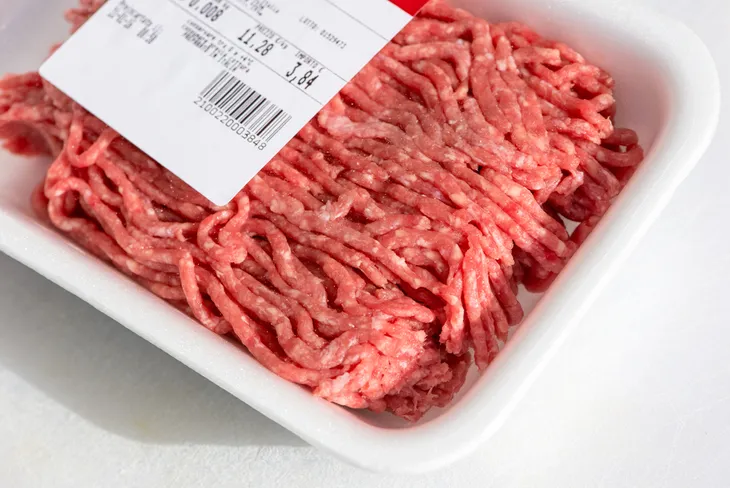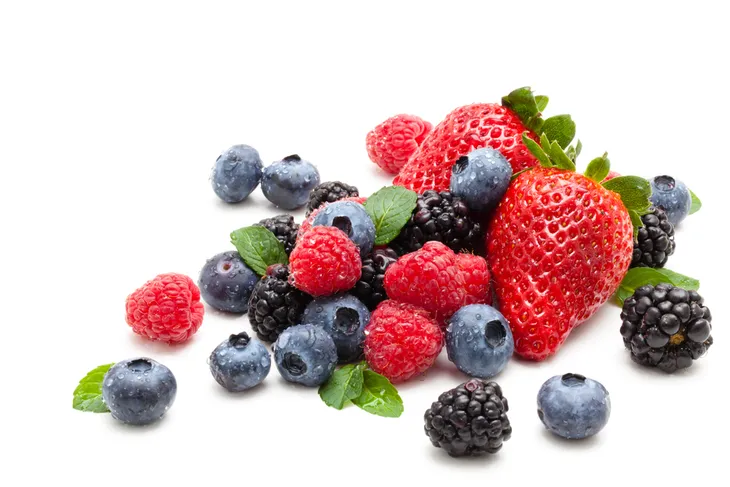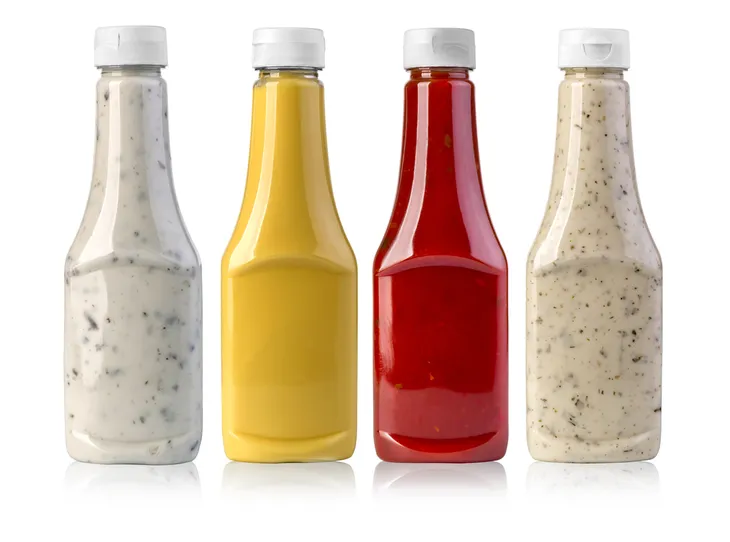Would you chance eating from a carton of eggs that was a few days past its due date? How about raw chicken breasts or ground beef? Even though you can get away safely with consuming some processed foods past their expiry date, it doesn’t mean you should take the same liberties with raw meats and fresh fruits and veggies—many of which are prone to bacteria and food poisoning soon after their “best before” package dates.
Let’s take a look at 15 of the riskiest foods to consume past their expiration dates and some you shouldn’t eat…
Eggs
Eggs pack more nutrients per calorie than the vast majority of other foods, and they are an inexpensive and delicious source of protein. It’s no wonder that they’ve become a breakfast staple, but if you’re thinking about cracking open an egg that’s past its expiry date, think again. Expired eggs are one of the most common causes of foodborne illness. Eating them can cause mild symptoms ranging from abdominal discomfort, gas and diarrhea to full-blown food poisoning.
In the United States, egg packing companies are not required by law to provide an expiry date, but they must stamp the date at which the eggs were packed onto every carton. If you store your eggs in the refrigerator, you can safely eat them for up to four weeks after they were packed. However, leave them any longer and you’ll be increasing your risk of upsetting your stomach or worse.
Deli Meat
We hear so many news stories about E. coli and Listeria bacteria in processed deli meats. These bacteria are prevalent in both prepackaged deli meats, and in the sliced variety you ask your butcher to prepare for you at your grocery store deli counter. As a general rule of thumb, deli meats are best consumed within three days of the date of purchase. Under no circumstances should you eat deli meats that are more than a week old.
Listeria bacteria is particularly dangerous, as the form of food poisoning it causes can be fatal in extreme cases. From a general standpoint, it’s probably best to steer clear of processed deli meats altogether, as they also tend to be very high in nitrates. Nitrates have been linked to a long list of health problems, including certain forms of cancer. If you do keep deli meat as part of your diet, choose fresher, natural, nitrate-free alternatives and eat it promptly.
Mixed Greens
Mixed greens including baby spinach, arugula, spring mix, packaged salad lettuce and other leafy veggies, don’t keep very well after their due date. So if their wilted appearance and slimy coating and doesn’t turn you off, think about the bacteria and pathogens lurking beneath your sandwich bread. While these products are sterilized and safe for consumption if you eat them promptly, they can very quickly become covered in disease-inducing bacteria.
Carefully check the best-before date before you open the package, and use safe storage guidelines to help keep your mixed greens fresher for the longest possible period. If you’re going to keep them in the bag they came in, roll it down to seal off the opening, and add a clothespin or elastic band to prevent oxygen from entering. Better yet, keep them in a sealed, airtight container and eat them within 48 hours of opening the package.
Alfalfa Sprouts
Alfalfa sprouts are packed with nutrients, and calorie for calorie, gram for gram, they’re one of the healthiest veggies on the planet. However, it’s very important that you use them quickly once you buy them, because they quickly become bacteria magnets. In fact, alfalfa sprouts attract more germs than leafy greens, especially if you accidentally leave them unrefrigerated. If that happens, you’re best off to cut your losses and just toss them out instead of taking chances. You stand to lose a lot more than a couple of dollars if you come down with a case of food poisoning.
Like leafy greens, alfalfa sprouts should be stored in the refrigerator, ideally in an airtight container. As a general rule of thumb, you should try to eat them within two to three days after purchase. They make a great addition to sandwiches and salads, so if you get creative, you’ll find no shortage of ways to eat up these healthy veggies.
Oysters
Many people would shy away from slurping down an oyster in the best of times, but if they’ve gone past their expiry date, they are especially unappealing. Not only are expired oysters foul-smelling and slimy, but they can also be downright deadly. This is because the kind of bacteria that builds up in rotten oysters – V. vulnificus – causes a severe form of food poisoning.
V. vulnificus bacteria causes a type of food poisoning that affects the bloodstream, sending the body into septic shock. This type of food poisoning can be very difficult to treat, and the prognosis generally isn’t good for patients who come down with it. If you’re an oyster aficionado, be especially careful to make sure your favorite treat is fresh. Steer clear if you’re in any doubt whatsoever, and only buy your oysters from a trustworthy source known for both freshness and quality.
Shrimp
Much like oysters, shellfish and shrimp are very prone to bacterial contamination. These bacteria build ups begin the minute the shrimp is removed from the ocean, and it can affect frozen products just as much as fresh ones. Shrimp rings are very popular at parties, especially during the holiday season, but you should be very cautious if you’re eating shrimp that’s been unrefrigerated for an extended period of time. As a general rule of thumb, if it’s not cold anymore, you should avoid eating it.
Shrimp, shellfish and scallops are all prone to these types of bacterial buildups. You can kill a lot of these bacteria by cooking them, but if you’re going to serve them raw, be sure to follow safe food handling guidelines and take extra care to be certain the seafood hasn’t passed its expiry date.
Raw Ground Beef
E. coli bacteria are the single most common cause of food poisoning, and do you know where it originates? These microbes come from cattle intestines, and as such, they are present to a greater or lesser degree in practically all raw beef products. If the beef is processed and handled safely, it won’t become a problem. It’s only once you fail to follow safe handling and processing guidelines that you open yourself up to the possibility of trouble.
To prevent getting sick from eating ground beef, always make sure to cook it thoroughly before consuming it. And, of course, you should never eat it past its expiration date. If you buy ground beef on sale, chances are it’s because the expiry date is approaching. Be sure to put it in the freezer right away and thaw appropriately before eating it. Consider cooling it well done for safety reasons. If you’re immune compromised it is recommended to cool all meats well done, says Julie Ching, registered dietitian.
Fresh Berries
Once berries go bad, they attract large quantities of cyclospora, a type of bacteria that lead to fecal food poisoning. While this type of food poisoning isn’t as dangerous as some other forms, it’s still something you definitely want to avoid, unless you want to spend a few days with chills, shivers, nausea, vomiting and diarrhea. As a general rule of thumb, aim to eat fresh berries within about three days of purchase.
Fortunately, it’s easy to spot a berry that’s gone bad. Fresh berries are brightly colored, with taut skins and plump bodies. Spoiled berries lose their shape, quickly breaking down into a slimy, watery, discolored mush. You may also notice buildups of mold on the skins of the berries before they start to break down. This is particularly common with strawberries. Extend their storage lives by laying them flat on a sheet of paper towel, then covering them and storing them in the fridge.
Soft Cheese
With hard cheeses, like cheddar, it’s often safe to cut off the outer edges if they’re showing signs of mold growth and eat the fresh cheese underneath. However, this practice doesn’t extend to soft cheeses, like brie. If you’re finding mold on the edges of your soft cheese, don’t eat it. You may end up with a case of listeria food poisoning. Instead, toss it in the garbage can and head down to the grocery store to buy a fresh supply.
Dairy products in general pose a heightened risk of food poisoning, since practically all dairy products contain significant amounts of bacteria. Some, like yogurt, are even the product of controlled spoilage, in which bacteria are encouraged to grow. Cheese is similar, which is why you have to be very careful about eating it. Always store it wrapped up, in the refrigerator, and never eat it past the “best before” date.
Chicken
Poultry products, including chicken, pose one of the highest risks of causing food poisoning if they’re not handled and cooked properly. You probably already know that undercooked chicken can be dangerous to eat, but it’s also important to be extra careful about how you handle fresh or frozen chicken. Cross-contamination can be a problem with meat, so never store raw chicken and beef side by side in your refrigerator.
When handling frozen chicken, be sure it is 100 percent thawed out before you start to cook it. Otherwise, the frozen center may not reach a safe internal temperature, leaving it undercooked with large amounts of bacteria inside. This can cause food poisoning, even if the rest of the piece of chicken is properly cooked. Be especially cautious about thawing if you’re going to cook a whole bird, and always double-check the listed expiry date before committing to your dinner plans.
Potato Salad
Potato salad is a common fridge staple in the summer months because it’s the perfect addition to any barbecue meal. However, because we tend to make such large portions of it, it somehow always ends up sitting at the back of the fridge, forgotten about. Don’t let this happen for too long. Reader’s Digest points out that potato salads are like egg salad, they’re susceptible to bacteria growth. This is because they’re often things that are opened and closed every time someone takes a scoop out here and there.
“Our food system is very safe, but sometimes when things fall out of temperature or if there is bacteria introduced, we have to be extra cautious with those things,” says Jessica Crandall, a Denver-based registered dietitian, certified diabetes educator, and national spokesperson for the Academy of Nutrition and Dietetics when talking to Reader’s Digest.
Jarred Condiments
Jarred condiments are a common thing to have that is expired because they tend to last a long time! You might have bought an odd one here or there for a specific recipe and then never used it again. If that’s the case, be sure the check the label before using it again, just to be sure. Just because they’ve been sitting comfortably in a cool spot in the fridge with a tight lid on doesn’t mean they’re immune to bacteria.
“Once you’ve opened the lid, that safety seal is broken, and you should be using that condiment in a timely fashion,” says Crandall to Reader’s Digest. “In addition, as we make sandwiches for example, we dip our knife into the spread container and wipe it onto the sandwich and then dip it back into the container. By doing this you’re putting some of that bacteria back into the container.” Look for any water floating on top, a strange smell, or any kind of discoloration. Those are all common indicators that it might be time to toss it.
Rye Bread
Most of us have experienced that sad disappointment when we reach for a piece of bread and realize it’s gone mouldy. Certain breads especially don’t have a very long shelf life. While rye bread tends to last a lot longer than others, once it’s gone past that expiry date, there’s no pushing it. You’re definitely not going to want to feel the effects of this…
The Food Network explains, “it can begin to grow a common grain fungi called ergot, which contains the chemicals ergotamine and lysergic acid. Both chemicals can have trippy effects.” The source goes on to state that it’s believed these chemicals can cause ergot poisoning which results in bizarre hallucinations.
Specialty Juices
Specialty juices like cold-pressed juice are all the rage in the health community because they contain a lot of nutrients. These fancy drinks are delicious and refreshing, especially after a nice workout, but they do require some attention to detail. If you’re someone who buys them in bulk, be wary. These juices do not have a long shelf life and cannot be enjoyed past their due date. According to Prevention, they only last about two days, maximum five days, after they’ve been bottled. The source talked to Jessica Levinson, RD, nutritionist at Nutritious Licious, who says this is because they’re unpasteurized, which means they are more prone to being contaminated by bacteria or yeast.
If you’re looking for someone that lasts a little longer, Prevention suggests trying high pressure processed (HPP) juices. These juices should still be consumed by their expiry date, but they last much longer. Somewhere from 30 to 45 days.
Fish
We’ve already mentioned two different types of shellfish (shrimp and oysters) that shouldn’t be eaten past their expiry date, and fish is no different. Just like shellfish and other foods on this list, fish are prone to bacteria. In fact, raw fish needs to be eaten one or two days after being purchased. If you don’t plan on eating the fish you’ve purchased right away, it must be vacuumed sealed or wrapped in a moisture proof paper or foil and put in the freezer, says Reader’s Digest.


















